

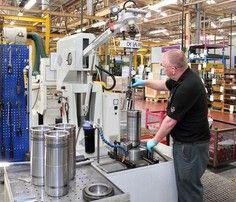
Honing machines are usually delivered with rudimentary or no equipment for clamping workpieces, as machine builders do not know what types of component their customers will be producing. Oleo International, which makes hydraulic buffers for the rail industry as well as for lifts and industrial use, has therefore fitted Kitagawa manual scroll chucks to its honing machines to retain cylindrical components securely, accurately and without damage. The chucks were supplied by UK agent, 1st Machine Tool Accessories.
Stan Ross, senior production engineer at Oleo’s Coventry factory said, “We use power chucks on our lathes for maximum holding power, as they are rotating and rough turning can generate a lot of torque.
“However, lower cost manual chucks are adequate for workholding when honing, as they remain static and the machining process does not impart much force.
“Nevertheless they need to be of good quality, as we need a high degree of repeatability and minimal distortion when clamping our cylinders and plungers.
“In addition, the chucks need to withstand a lot of wear and tear from honing paste and fine metal particles, especially on vertical honers, so durability is important to ensure long service life.”
With these prerequisites in mind, Mr Ross selected Japanese-made Kitagawa 3-jaw, self-centring scroll chucks for use on all four of Oleo’s honing machines. Two are Delapena semi-automatic, vertically-stroking PowerHones and the others are Sunnen horizontally-acting CNC tube honers. It means that jaws can be swapped between the machines for maximum production versatility.
Two-piece jaws are used, comprising a steel base to which a suite of 10 sets of pre-machined aluminium jaws are secured using cross tenon mounting and two bolts per jaw.
The base is secured using a new cross guide system that minimises run-out. Teeth on the underside engage with a scroll plate, located inside the steel chuck body, as it is rotated to tighten and release the workpiece.
The aluminium tops are machined to suit different sizes of plunger and cylinder and some are wrap-around to increase the holding force. This precaution is sometimes necessary, as higher torque is imparted when machining larger diameters and honing oil has a tendency to cause a clamped component to slip.
In conclusion, Mr Ross commented, “We have dealt with the Kitagawa agent, 1st MTA for a decade and always find them professional in their approach and technically knowledgeable. They recommend the best product for an application, even though it might cost less than others in their range.
“Another thing we liked was their willingness to fly in a chuck from Japan at no extra cost when we bought the last two, as they only had one of the model we wanted in stock.”
Kitagawa manufactures a large variety of 2-, 3-, 4- and 6-jaw manual chucks up to 457 mm (18 inches) in diameter. The scroll chuck models in use at Oleo are of 310 mm diameter, designated JN12T, with 10 – 300 mm external and 90 – 290 mm internal clamping ranges and 55 kN maximum gripping force.
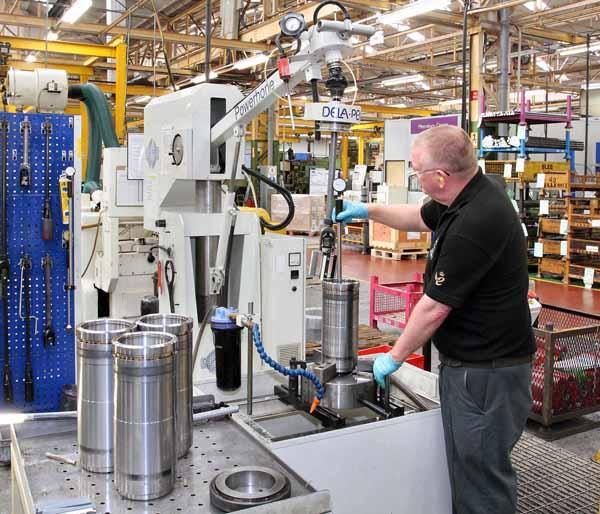
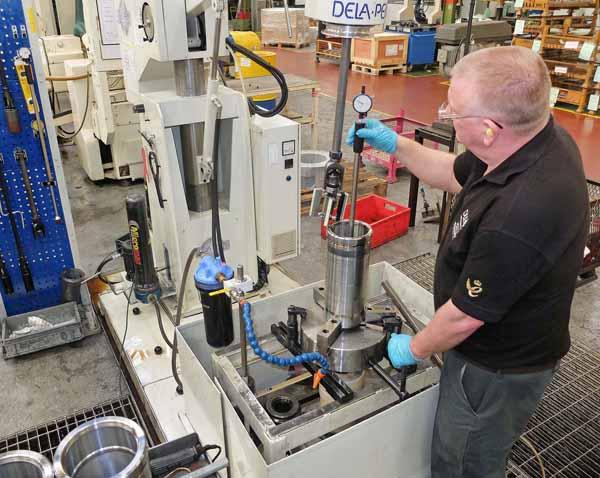
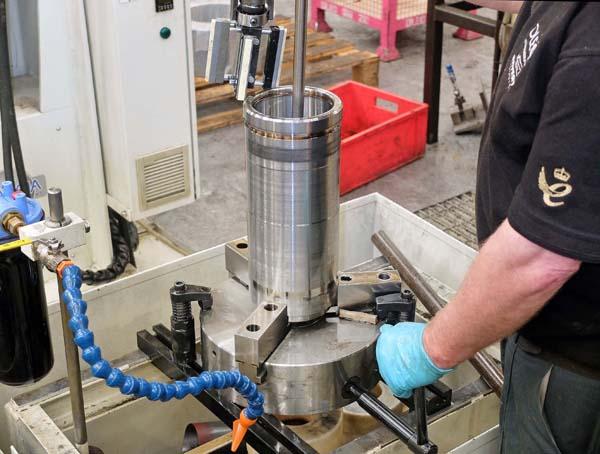
1, 2 & 3. A Kitagawa JN12T manual scroll chuck clamping an Oleo type 4 rail buffer cylinder for machining on a Delapena vertical PowerHone.
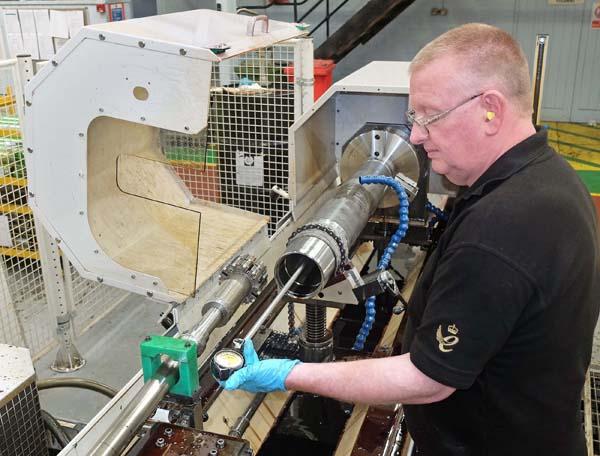
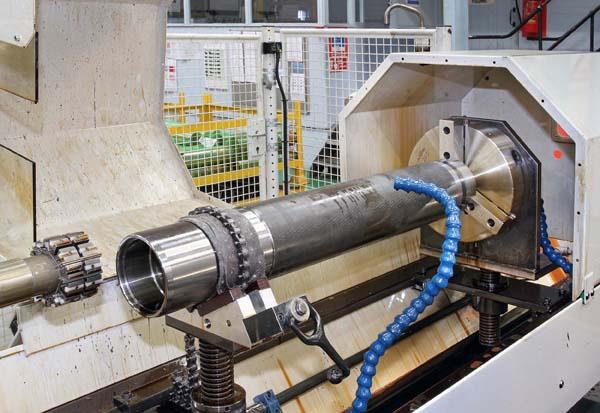
4 & 5. An Oleo Type 70 industrial buffer cylinder secured for horizontal honing on a Sunnen CNC machine. The chain clamp at one end, which is supplied with the machine, would be insufficient to hold the part firmly enough, hence the use of a Kitagawa JN12T manual scroll chuck at the far end.